featured
The High Times Guide to THCA: What It Is, How It Works, and Why Everyone’s Talking About It
Published
14 hours agoon
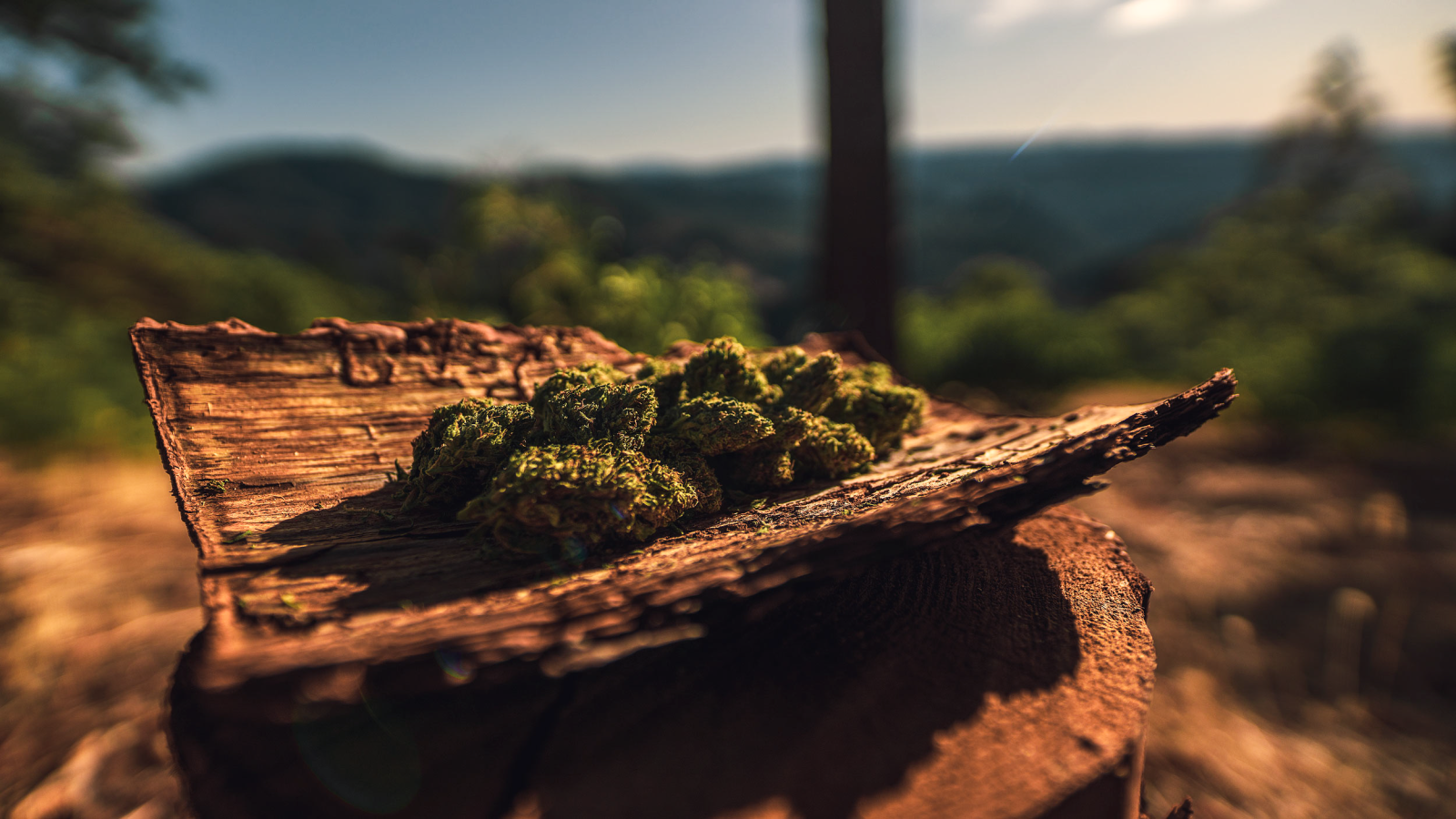
![]()
Depending on who you ask, THCA is either the future of cannabis or the latest hemp loophole. It’s the molecule turning “legal” hemp flower into a legitimate high—the chemistry trick that’s reshaping dispensary menus and blurring the line between hemp and weed.
Once a quiet lab term, THCA is now everywhere: in jars, pre-rolls, vapes, and hashtags. It’s science and street smarts rolled into one—proof that the plant always finds a way.
So what is THCA, really? How does it work? And why is everyone suddenly talking about it? Let’s dig in.
What Is THCA?
THCA stands for tetrahydrocannabinolic acid, the raw, non-psychoactive form of THC found naturally in cannabis plants. In living or freshly harvested flower, most of the THC actually exists as THCA. It’s a compound that won’t get you high until heat enters the equation.
THCA is the plant’s way of storing THC in a dormant state. When you smoke, vape, or bake, the heat triggers decarboxylation, the chemical reaction that removes a carbon group and transforms THCA into the THC molecule we all know and love.
In short:
- Raw cannabis = high in THCA, non-intoxicating
- Heated cannabis = THCA converts to THC, psychoactive
That’s the big secret behind “THCA flower.” It’s cannabis rich in THCA and low in delta-9 THC when tested, making it technically compliant hemp under federal law. But when you spark it, it becomes the real deal.
THCA vs. THC: What’s the Difference?
While they share nearly identical structures, THCA and THC behave very differently. The distinction comes down to that little extra carboxyl group (–COOH) on the THCA molecule.

In its raw state, THCA doesn’t activate the CB1 receptors that create the “high.” But apply heat, and that small structural change flips the switch—turning potential energy into psychoactive power.
The Science of Decarboxylation
Decarboxylation is what transforms THCA into THC. Think of it like roasting coffee beans—same ingredients, new chemistry.
When cannabis is heated—whether in a joint, a vape, or an oven—THCA loses its extra carbon dioxide molecule (CO₂). That small change alters its shape just enough to let it fit perfectly into the brain’s cannabinoid receptors.
General temperature guide:
- Light decarb: ~200°F (93°C) for 45–60 minutes
- Full conversion: ~220°F (104°C) for 30–45 minutes
- Overheating (>250°F) starts degrading THC into CBN, which delivers a heavier, sleepier effect
Most consumers don’t need to worry about this science because their lighter or vape pen does the job in real time. But understanding decarboxylation helps explain why THCA flower is legally hemp, yet functionally weed once it’s smoked.
Is THCA Legal?
The legality of THCA is a tangled web. What’s allowed often depends on when it’s measured, where, and under what definition.
Federal Baseline: The 2018 Farm Bill & “Hemp” Definition
The 2018 Farm Bill legalized hemp (and derivatives) if delta-9 THC (on a dry weight basis) is ≤ 0.3%. That law does not explicitly define limits on THCA. Because THCA is not delta-9 THC itself, some interpreted that high-THCA, low-THC hemp is permissible.
However, regulators frequently require a “total THC” test, meaning delta-9 THC + THCA×0.877 (a conversion factor). Under that regime, high-THCA products may push total THC over 0.3%, making them non-compliant.
In recent moves, federal proposals have surfaced that seek to redefine “hemp” by total combined THC (including THCA) rather than just delta-9 THC. If passed, many THCA-rich products would become illegal even if delta-9 THC is low.
Some legal analysis and DEA commentary suggest THCA might be considered under the analog doctrine (treated like THC) because it readily converts, making its regulatory status vulnerable.
State by State: Patchwork Rules
States vary wildly.
- Some states explicitly treat THCA as controlled or restrict its sale.
- Others allow THCA flower under hemp laws if delta-9 THC remains low at sale time.
- In certain jurisdictions, lawmakers have pushed bans or stricter rules on intoxicating hemp derivatives that include THCA products.
- Legal observers warn that the “loophole era” of THCA may be closing, with states ramping enforcement.
So: THCA may be legal in one state, restricted in another, and borderline in the next. Always check local law—and assume things could change rapidly.

Why THCA Flower Is Everywhere Right Now
THCA flower exploded in popularity because it delivers a familiar experience—the taste, smell, and potency of real cannabis—without technically breaking federal hemp limits.
For consumers in states without recreational dispensaries, it’s a game-changer. For brands, it’s a way to innovate legally. And for the cannabis industry as a whole, it’s a fascinating snapshot of how quickly science, law, and culture adapt to each other.
In other words: THCA flower sits right at the intersection of chemistry and creativity — the same space cannabis has always thrived in.
How to Use THCA
Smoking or Vaping: The most common method, and the one that converts THCA to THC instantly. Expect effects similar to standard cannabis, varying by strain and potency.
Edibles: You can decarboxylate THCA flower in the oven (at around 220°F for 30–40 minutes) before infusing it into butter or oil. Once decarbed, it behaves like regular THC in your edibles.
Raw Consumption: If you eat or juice raw THCA flower without heating, you won’t get high, but you may still experience some of the potential wellness benefits linked to cannabinoids. Some people add it to smoothies or salads for this reason.
Topicals: THCA-infused balms and salves may offer localized support for inflammation or muscle soreness without any psychoactive effects.
Does THCA Get You High?
Here’s the simplest answer:
- Raw THCA: No, it’s non-intoxicating.
Heated THCA: Yes, because it becomes THC.
When you smoke, vape, or cook it, THCA undergoes decarboxylation, converting into the same psychoactive molecule found in traditional cannabis. That’s why THCA flower can feel just like dispensary weed once you light up.
Potential Benefits of THCA
Research on THCA is still in early stages, but preclinical studies and anecdotal reports suggest several areas of promise:
- Anti-inflammatory: THCA may help regulate inflammatory pathways.
- Neuroprotective: Studies have explored its potential role in neurodegenerative diseases.
- Anti-nausea: Early data hints that THCA might reduce nausea or stimulate appetite.
- Antioxidant properties: THCA has been shown to neutralize free radicals.
Many of these effects overlap with THC and CBD, but more research is needed before any definitive medical claims can be made. What’s exciting is that THCA seems to have distinct physiological effects in its raw form, separate from THC’s psychoactivity.
Reading a COA (Certificate of Analysis): What to Look For
Every legitimate THCA product should come with a lab report. Understanding it protects you from buying mislabeled or non-compliant flower.
Here’s how to read it:
- THCA %: The primary active precursor.
- Δ9-THC %: Must be below 0.3% for hemp compliance.
- Total THC: Should be calculated as THC + (THCA × 0.877).
- Lab credentials: Look for ISO-certified labs using HPLC methods.
- Date and batch: Recent and traceable.
- Contaminant screens: Ensure it’s tested for pesticides, heavy metals, and microbes.
Pro tip: High-quality THCA flower usually tests between 20–30% THCA with minimal Δ9. Anything drastically outside that range warrants scrutiny.
How to Store THCA
THCA is sensitive to heat, light, and oxygen. Over time, it can convert into THC or degrade into CBN—both of which change the product’s potency and character.
Storage checklist:
- Keep in airtight, opaque glass jars.
- Store in a cool, dark place — ideally below 70°F (21°C).
- Avoid constant opening/closing or handling.
- For long-term storage, refrigeration (sealed) can help, but allow jars to warm to room temp before reopening.
Proper storage keeps your flower fresh, flavorful, and compliant.

Is THCA Safe?
THCA and THC are both generally well-tolerated, but quality control is everything. Stick with products that:
- Are lab-tested by accredited facilities
- Are free from contaminants
- Clearly list cannabinoid content and source
Because THCA is often sold under hemp law, regulation can be uneven. That’s why buying from trusted, transparent brands—like High Times’ own THCA line—is key.
The High Times Takeaway
The THCA boom represents more than a chemistry lesson—it’s a glimpse into cannabis’s constant evolution. As regulators refine definitions and markets mature, THCA may bridge the gap between hemp and traditional cannabis, giving consumers more choice while pushing science and policy forward.
Whether it remains a legal workaround or becomes fully integrated into the regulated cannabis space, one thing’s certain: THCA has changed the game—and it’s not fading anytime soon.
If you’re curious about the chemistry or just want to experience it yourself, THCA flower offers a way to explore the full spectrum of cannabis, legally, for now.
You can check out High Times’ new line of premium THCA flower, lab-tested, potent, and grown with integrity. Call it hemp, call it weed—we just call it progress.
Frequently Asked Questions
Is THCA legal everywhere in the U.S.?
Not exactly. Federally, it’s legal if derived from hemp with less than 0.3% delta-9 THC, but some states have introduced restrictions. Always check your local regulations.
Will THCA flower get me high?
Not until it’s heated. Once decarbed, it delivers the same psychoactive experience as THC.
Can THCA cause a positive drug test?
Yes. Once consumed with heat, THCA becomes THC—and your body will metabolize it the same way.
Is THCA the same as CBD?
No. CBD doesn’t convert to THC and remains non-intoxicating regardless of heat. THCA can become psychoactive.
What’s a good THCA percentage?
Top-shelf THCA flower usually ranges between 20–30% THCA. Anything above that is considered potent.
Does THCA have medical benefits?
Early research suggests possible anti-inflammatory and neuroprotective effects, but no official medical uses have been confirmed yet.
What’s the difference between THCA and marijuana?
They’re the same plant. The legal distinction depends on delta-9 THC levels — hemp (low THC) vs. marijuana (high THC).
<p>The post The High Times Guide to THCA: What It Is, How It Works, and Why Everyone’s Talking About It first appeared on High Times.</p>

Author: mscannabiz.com
MScannaBIZ for all you Mississippi Cannabis News and Information.
You may like
-
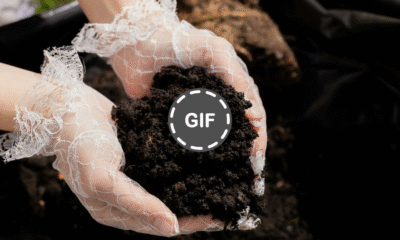

The Living Soil Revolution: Cannabis, Regeneration, and Resistance
-
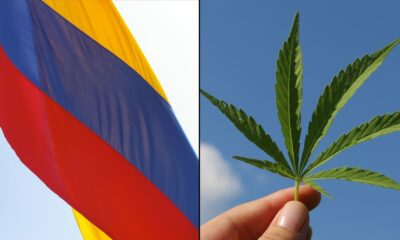

Colombia’s President Tells Trump To Legalize Marijuana To Combat Illicit Drug Trade
-


39 Bipartisan State And Territory Attorneys General Push Congress To Ban Intoxicating Hemp Products
-
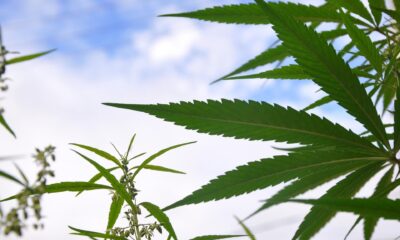

New Jersey Democratic Gubernatorial Candidate Previews Marijuana Policy Priorities If Voters Elect Her Next Week
-


What If Barstool and Vice Hotboxed a Studio? Proper Smoke Network by First Smoke x Proper Doinks Has Arrived
-
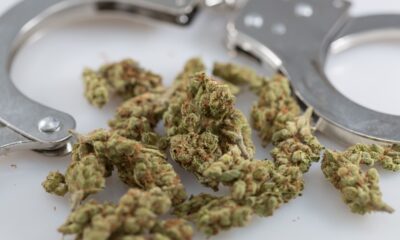

Ohio Lawmakers Approve Marijuana Bill That Creates A Process To Expunge Past Convictions
featured
The Living Soil Revolution: Cannabis, Regeneration, and Resistance
Published
30 minutes agoon
October 28, 2025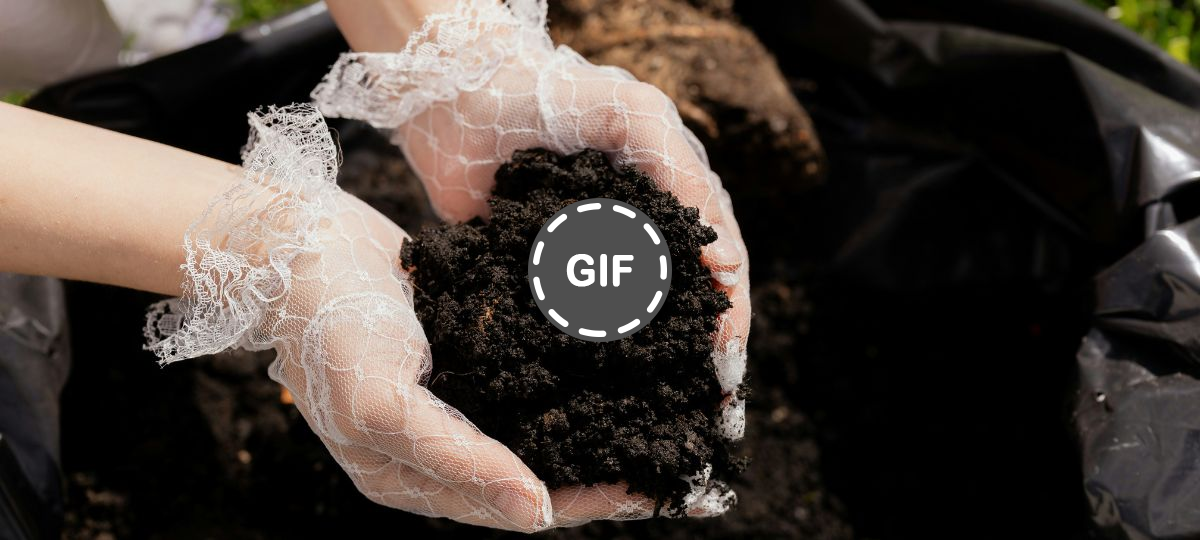
For all the talk about potency, yield, and branding, the real revolution in cannabis is happening underground—in the living soil. Dig your hands into it and you’ll feel it breathing: earthworms tunneling, mycelium threading through humus, microbes trading nutrients like a microscopic marketplace. This is where the plant’s magic begins.
“Living soil” isn’t a buzzword; it’s a rebellion. As the legal industry chases sterile perfection through hydroponics and chemical control, a growing movement of cultivators is going back to the dirt—not out of nostalgia, but necessity. In their eyes, saving the plant means saving the planet.
What Is Living Soil?
At its simplest, living soil is exactly what it sounds like: soil that’s alive. It’s a self-sustaining ecosystem rich with fungi, bacteria, protozoa, nematodes, and organic matter, all cycling nutrients to the plant in exchange for root exudates (the sugars the plant feeds them).
Dr. Elaine Ingham, a pioneering soil microbiologist and founder of the Soil Food Web School, describes healthy soil as operating like a “nutrient banking system” —microbes store and release elements as the plant demands. Her Soil Food Web approach is used by growers who want to restore soil biology rather than override it.
In cannabis cultivation, that relationship is everything. When soil is thriving, plants develop deeper terpene profiles, stronger immune systems, and richer cannabinoid expressions. Living soil doesn’t just grow cannabis. It grows the complexity that makes cannabis cannabis.
The Cannabis Soil Rebellion
The industrialization of legal cannabis has come with a price: uniformity. Across North America, massive hydroponic facilities dominate headlines with LED wattage, square footage, and quarterly yields. Yet for all their gleaming technology, something essential gets lost—the character of the plant.
In contrast, small-scale legacy growers from Northern California’s Emerald Triangle to forests of Maine and Oregon are leading what they call the “soil rebellion.” These cultivators aren’t anti-progress; they’re anti-sterility. Their farms hum with compost-tea brewers instead of air conditioners. Their grow rooms smell of earth, not disinfectant.
To them, living soil is a statement of resistance—a middle finger to the corporate model that treats cannabis like a commodity instead of a culture. They’re not chasing uniformity; they’re chasing vitality.
The Environmental Stakes
Industrial cannabis is quietly becoming one of the most energy-hungry crops in North America. A major study in Nature Sustainability found that indoor cannabis cultivation can generate between 2,283 and 5,184 kilograms of CO₂-equivalent per kilogram of dried flower, largely driven by lighting, HVAC, and environmental control systems.
In some reporting, that’s framed as equivalent to growing one ounce of cannabis indoors having the same emissions as burning 7–16 gallons of gasoline, depending on location.
By contrast, sun-grown and living-soil operations drastically reduce that footprint. No artificial lighting. No chemical runoff. No wasted nutrients. Instead, cultivators build closed-loop systems: composting leftover plant material, capturing rainwater, and encouraging biodiversity that manages pests naturally.
As the planet warms, the cannabis industry faces a choice. Either double down on energy-intensive “clean rooms,” or return to the soil systems that sustained the plant for millennia. The growers choosing the latter aren’t Luddites; they’re the real innovators.
Microbes, Mycelium, and Medicine
Living soil isn’t just an environmental win—it’s an alchemical one. Beneath the surface, a web of mycorrhizal fungi extends far beyond the roots, exchanging minerals for sugars and transmitting chemical signals between plants. It’s the internet of the earth, and cannabis thrives in that connectivity.
Terpenes, the aromatic compounds that define each strain’s scent and therapeutic profile, are heavily influenced by soil biology. Plants grown in biologically active soils often show higher terpene diversity and potency than those grown in sterile hydro systems. (See studies in Frontiers in Plant Science and other journals correlating soil microbial diversity with improved secondary metabolites.)
The rhizosphere—the narrow soil layer immediately surrounding the roots—is where most of that chemical exchange happens. Roots exude sugars and organic acids that feed microbes, which in turn break down nutrients and make them available to the plant.
In short, the microbes matter. When cultivators nurture the unseen world underfoot, they’re amplifying not just yield but medicine, but producing flower that’s chemically richer, more aromatic, and more effective for the end user.
Farmers as the New Counterculture
It’s tempting to view the living-soil movement as a trend, but talk to the people building compost piles at midnight or experimenting with Korean natural farming techniques, and you’ll hear a different tone: one of defiance.
These are farmers who see themselves as stewards, not suppliers. They reject synthetic control because it mirrors the same top-down systems that outlawed cannabis in the first place. Living soil, to them, is a political act. An assertion of autonomy and connection in an industry increasingly run by spreadsheets.
This isn’t hippie nostalgia. It’s a science-backed rebellion with cultural roots stretching to the earliest cannabis communities. The living-soil movement echoes the same anti-establishment ethos that made cannabis a symbol of resistance in the 1960s and ’70s. Only now, the battleground isn’t in the streets—it’s beneath our feet.
The Return to the Roots
Every few years, the cannabis industry reinvents its buzzwords: “craft,” “premium,” “sustainable.” But the growers working in living soil aren’t selling trends; they’re rebuilding relationships. To them, soil is sacred. It’s the link between plant, person, and planet. It’s a partnership that industrial models can’t replicate.
And maybe that’s the real message of living soil. Beneath the debates over legalization, taxes, and potency lies a simple truth: what we grow reflects how we live. If we cultivate sterile, extractive systems, we’ll get sterile, extractive results. But when we nurture life—in the soil, in our communities, in our politics—we harvest something far more powerful.
The next revolution in cannabis isn’t coming from boardrooms or branding agencies. It’s already happening in the ground—quiet, humble, unstoppable.

Author: mscannabiz.com
MScannaBIZ for all you Mississippi Cannabis News and Information.
featured
Colombia’s President Tells Trump To Legalize Marijuana To Combat Illicit Drug Trade
Published
7 hours agoon
October 27, 2025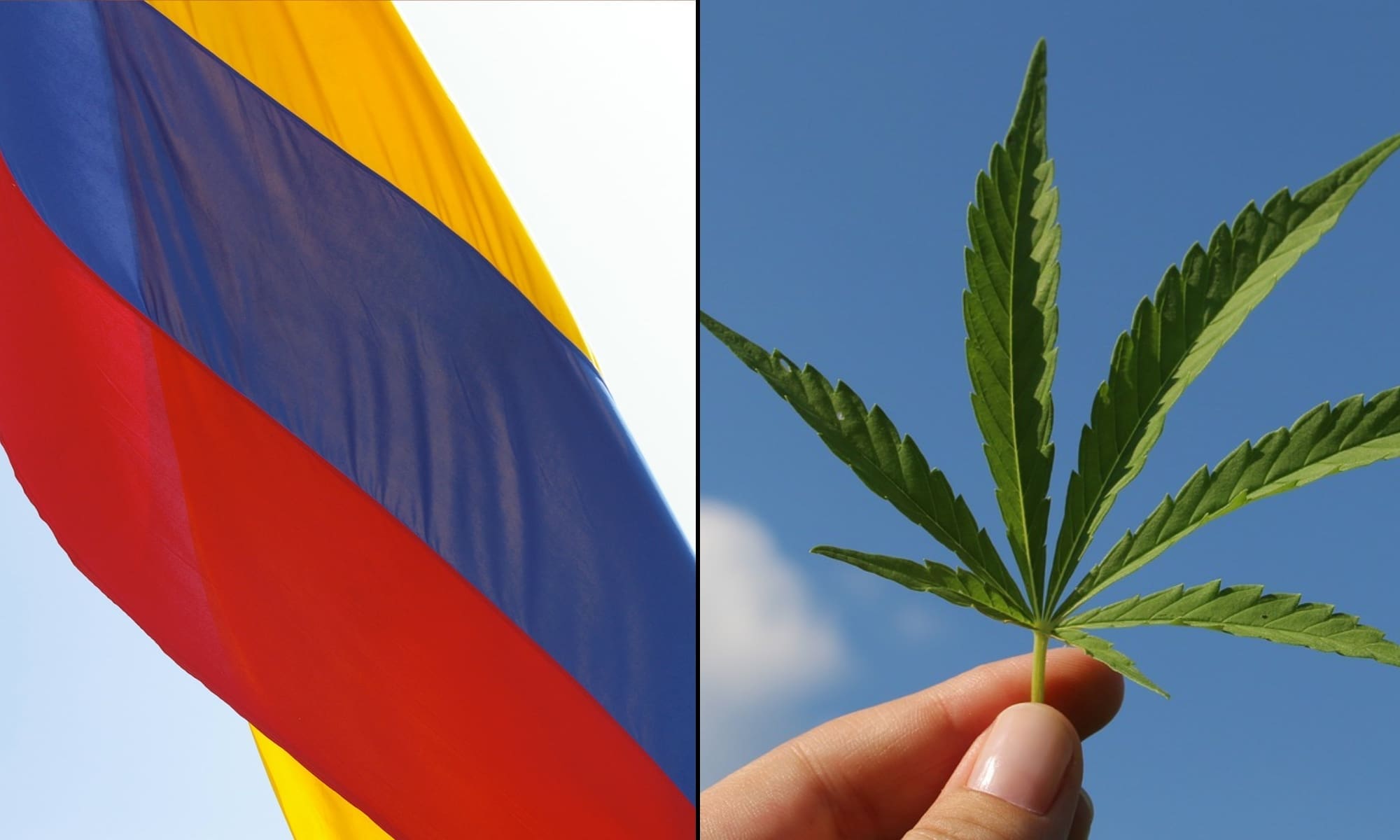
The president of Colombia says U.S. President Donald Trump should replace the policy of marijuana prohibition with a regulatory framework allowing for adult use and international cannabis exports.
In an post on X last week, Colombian President Gustavo Petro addressed broader drug policy issues amid a broader feud between the two leaders over the Trump administration’s military strikes against boats alleged to be trafficking narcotics.
“Colombia actually provides the money and the deaths in the struggle, while the U.S. provides the consumption,” Petro said, according to a translation. “Consumption in the U.S. and the growing consumption in Europe are responsible for 300,000 murders in Colombia and a million deaths in Latin America.”
But he also said he proposed to Trump “the opposite” of what the administration is currently doing—by removing tariffs on Colombian agriculture goods and legalizing the “export of cannabis” like “any good,” for example. Petro said that reform could be justified by the United Nations’s decision to reschedule cannabis under international treaties to which both countries are parties.
Las guerras que Colombia vive desde hace 5 décadas, primero urbana hasta 1993, después rural, se deben al consumo de cocaína en EEUU; aunque han habido aportes de gobiernos estadounidenses a la paz de Colombia, han sigo exigüos y nulos en los últimos años.
Se ha construido una… https://t.co/R2SGZEnDfU
— Gustavo Petro (@petrogustavo) October 20, 2025
Trump should also “strengthen the policy of prevention of consumption in the U.S.” and “scientifically study whether prohibition is necessary, or rather responsible and state-regulated consumption build a more effective treaty for the pursuit of narcos’ capital and assets in the world,” the Colombian president said, as High Times first reported.
Trump last week called Petro an “illegal drug leader” and the U.S. Treasury Department’s Office of Foreign Assets Control sanctioned the Colombian president, members of his family and his advisors for alleged involvement in drug trafficking.
This comes months after Colombian lawmakers gave initial approval to a bill that would nationally legalize marijuana—with a House committee in August taking the first step in an extensive legislative process to enact the reform.
Petro has consistently supported legalizing cannabis—and he’s put pressure on legislators to advance the issue. He said in late 2023 that lawmakers who voted to shelve a legalization bill that year only helped to perpetuate illegal drug trafficking and the violence associated with the unregulated trade.
After a visit to the U.S. in 2023, the Colombian president recalled smelling the odor of marijuana wafting through the streets of New York City, remarking on the “enormous hypocrisy” of legal cannabis sales now taking place in the nation that launched the global drug war decades ago.
Petro also took a lead role at the Latin American and Caribbean Conference on Drugs in 2023, noting Colombia and Mexico “are the biggest victims of this policy,” likening the drug war to “a genocide.”
In 2022, Petro delivered a speech at a meeting of the UN, urging member nations to fundamentally change their approaches to drug policy and disband with prohibition.
He’s also talked about the prospects of legalizing marijuana in Colombia as one means of reducing the influence of the illicit market. And he has signaled that the policy change should be followed by releasing people who are currently in prison over cannabis.
Trump, for his part, has not embraced federal legalization, though he said in late August that a decision on a pending marijuana rescheduling proposal would come within weeks. Much of his drug policy actions of late have focused on cartels, with controversial extrajudicial attacks on boats in international waters that were allegedly transporting drugs to the U.S.
Image element courtesy of Bryan Pocius.

Author: mscannabiz.com
MScannaBIZ for all you Mississippi Cannabis News and Information.
featured
39 Bipartisan State And Territory Attorneys General Push Congress To Ban Intoxicating Hemp Products
Published
8 hours agoon
October 27, 2025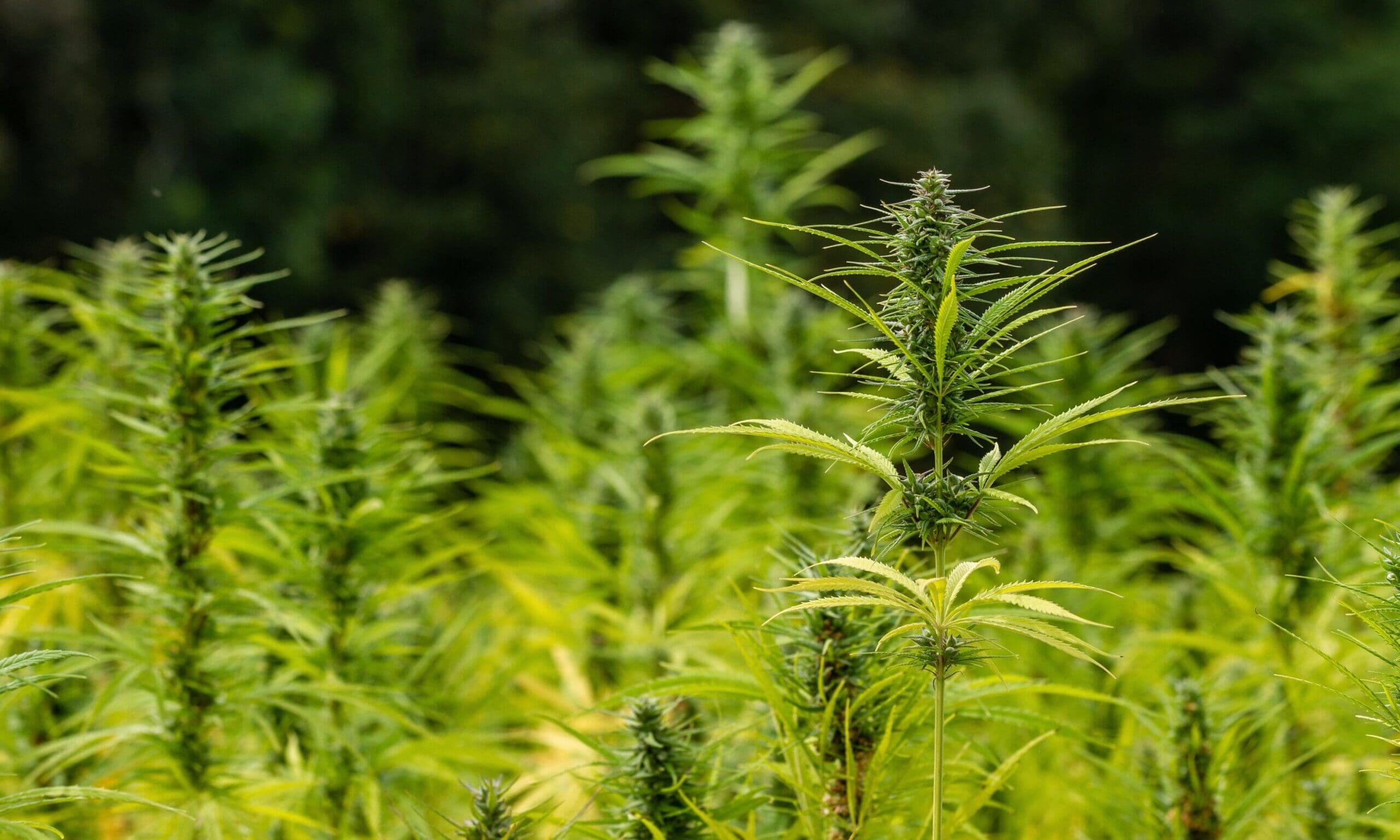
A bipartisan coalition of 39 state and territory attorneys general is calling on Congress to clarify the federal definition of hemp and impose regulations preventing the sale of intoxicating cannabinoid products.
In a letter sent to the Republican chairs of the House and Senate Appropriations and Agriculture Committees on Friday, members of the National Association of Attorneys General (NAAG) expressed concerns with provisions of the 2018 Farm Bill that legalized hemp, which they said has been “wrongly exploited by bad actors to sell recreational synthetic THC products across the country.”
They’re asking that lawmakers leverage the appropriations process, or the next iteration of the Farm Bill, to enact policy changes that “leave no doubt that these harmful products are illegal and that their sale and manufacture are criminal acts.”
Arkansas Attorney General Tim Griffin (R), Connecticut Attorney General William Tong (D), Indiana Attorney General Todd Rokita (R) and Minnesota Attorney General Keith Ellison (D) led the letter, underscoring the bipartisan sentiment driving the call for congressional action.
“Intoxicating hemp-derived THC products have inundated communities throughout our states due to a grievously mistaken interpretation of the 2018 Farm Bill’s definition of ‘hemp’ that companies are leveraging to pursue profits at the expense of public safety and health,” they wrote. “Many of these products—created by manufacturers by manipulating hemp to produce synthetic THC—are more intoxicating and psychoactive than marijuana a Schedule I controlled substance and are often marketed to minors.”
While the debate over revising federal hemp laws has been a consistent talking point this year, with attempts in both chambers to enact a ban on products containing THC, so far such restrictions have only been implemented at the state level.
“Unless Congress acts, this gross distortion of the 2018 Farm Bill’s hemp provision will continue to fuel the rapid growth of an under-regulated industry that threatens public health and safety and undermines law enforcement nationwide,” the letter says.
“Congress never meant to legalize these products in the 2018 Farm Bill. A proper interpretation of the Farm Bill’s hemp provision demonstrates that the entire synthetic THC industry rests on a foundation of illicit conduct,” it continues. “Clear direction from Congress is needed to shut down this industry before it metastasizes further into an even greater threat to public safety than it already is.”
The top state and territory law enforcement officials raised the alarm about the fact that, while hemp is defined as cannabis containing no more than 0.3 percent delta-9 THC by dry weight, the natural cannabinoids in hemp such as CBD can be synthesized into intoxicating compounds such as delta-8 THC, delta-10 THC and HHC.
“In this way, legal, nonintoxicating hemp is used to make Frankenstein THC products that get adults high and harm and even kill children,” they said.
“State efforts to outlaw hemp-derived psychoactive products to protect their citizens cannot solve this problem. Such efforts can only lead to an uneven and ineffectual patchwork of bans and regulations that differ from State to State and will not stop the flood of mail-order THC products from streaming through interstate commerce. Congress must act to salvage the 2018 Farm Bill’s laudable legalization of commercial hemp from the psychoactive hemp industry’s spoliation of the Bill’s hemp provision.”
Other signatories on the letter include the attorneys general of Alabama, Arizona, California, Colorado, Delaware, Georgia, Hawaii, Illinois, Iowa, Kansas, Louisiana, Maine, Maryland, Massachusetts, Mississippi, Missouri, Nebraska, Nevada, New Hampshire, New Mexico, New York, North Carolina, North Dakota, Ohio, Oklahoma, Pennsylvania, Puerto Rico, Rhode Island, South Carolina, South Dakota, U.S. Virgin Islands, Utah, Vermont, Virginia and Wyoming.
“Importantly, the prohibition on products containing intoxicating levels of THC—of any kind and no matter how it is derived—will not inhibit the cultivation of hemp for industrial and agricultural uses since hemp does not contain intoxicating levels of THC,” they said. “The original goal of the 2018 Farm Bill’s hemp provision can still be effectuated while Congress also eliminates the dangerous and illegal drug market that has been created through incorrect interpretations of the Farm Bill.”
“We commend your commitment to American farmers and your work to create an orderly and well-regulated market for industrial hemp and non-intoxicating hemp-derived products,” the letter concludes. “You should not allow irresponsible corporations to take advantage of your good work to purvey dangerous products in our States. We ask Congress to act decisively to clarify the Farm Bill’s definition of hemp to ensure intoxicating THC products are taken off the market.”
That’s a particularly bold ask that industry stakeholders say could jeopardize the hemp market altogether. While there’s generally consensus around the idea that intoxicating cannabinoid products shouldn’t be accessible to youth or sold in an unregulated manner, businesses feel a middle-ground with age-gating and rules to ensure certain safety and advertising standards are met would be a superior approach.
Meanwhile, a GOP senator is hoping to replace a proposed ban on hemp THC products with alternate appropriations language mandating a study into state regulatory models for consumable cannabinoids. Sen. Rand Paul (R-KY) is circulating legislative language that he’s asking to be adopted as part of the final package.
The agriculture appropriations measure the Senate passed as part of a package over the summer initially contained provisions hemp industry stakeholders said would effectively eradicate the market by banning consumable hemp products with any “quantifiable” amount of THC. But after the measure came out of committee, Paul threatened to hold up its passage over the issue, and the language was removed.
Sen. Mitch McConnell (R-KY), who ushered in the federal legalization of hemp under the 2018 Farm Bill, championed the THC criminalization language and took to the floor to criticize those who opposed the ban, including Paul.
Meanwhile, Paul recently filed a standalone bill that would go in the opposite direction of the hemp ban, proposing to triple the concentration of THC that the crop could legally contain, while addressing multiple other concerns the industry has expressed about federal regulations.
The senator introduced the legislation, titled the Hemp Economic Mobilization Plan (HEMP) Act, in June. It mirrors versions he’s sponsored over the last several sessions.

Author: mscannabiz.com
MScannaBIZ for all you Mississippi Cannabis News and Information.

The Living Soil Revolution: Cannabis, Regeneration, and Resistance

Colombia’s President Tells Trump To Legalize Marijuana To Combat Illicit Drug Trade

39 Bipartisan State And Territory Attorneys General Push Congress To Ban Intoxicating Hemp Products
New Jersey Democratic Gubernatorial Candidate Previews Marijuana Policy Priorities If Voters Elect Her Next Week

What If Barstool and Vice Hotboxed a Studio? Proper Smoke Network by First Smoke x Proper Doinks Has Arrived

Ohio Lawmakers Approve Marijuana Bill That Creates A Process To Expunge Past Convictions

How Cannabis Can Help Combat Fall Respiratory Ailments

The Boston Beer Co. Launches Emerald Hour Gummies in Canada

The High Times Guide to THCA: What It Is, How It Works, and Why Everyone’s Talking About It

The best grow tents of 2025

Kansas Lawmakers Discuss Legality Of Intoxicating Hemp THC Products

Guess What Is Threading Its Way Back To Being Popular

39 Attorneys General Tell Federal Lawmakers to Ban Hemp THC Products

Now Is the Time to Embrace, Not Abandon, Cannabis Activism

No One Is Giving Your Kids Marijuana Edibles in Their Halloween Candy

Florida Case On Medical Marijuana Patients’ Gun Rights Is On Hold As Supreme Court Weighs Underlying Issue

CULTA Appoints Cannabis Industry Veteran Joseph Andreae as CEO

The Creature from the Black Leather Lagoon

Cannabis industry case challenging prohibition hits Supreme Court (Newsletter: October 27, 2025)

I Worked a Day as a Budtender in Brooklyn: Here’s What I Learned

Trump’s ‘Stupid’ Drug War Killings Put Military In Untenable Position, Former GOP Attorney General Of Idaho Says (Op-Ed)

Oregon Officials Seek To Dismiss Psilocybin Access Lawsuit From Homebound Patients

South Dakota Medical Marijuana Advocates Alarmed After Lawmakers Give Prohibitionists A Platform

What Levi Strauss Can Teach Us About Craft and Cannabis

Alert: Department of Cannabis Control updates data dashboards with full data for 2023

Connecticut Appoints The US’s First Cannabis Ombudsperson – Yes there is a pun in there and I’m Sure Erin Kirk Is Going To Hear It More Than Once!

5 best CBD creams of 2024 by Leafly

Recreational cannabis on ballot for third time in South Dakota

EU initiative begins bid to open access to psychedelic therapies
New Study Analyzes the Effects of THCV, CBD on Weight Loss

Free delta-9 gummies from Bay Smokes

5 best autoflower seed banks of 2024 by Leafly

Discover New York’s dankest cannabis brands [September 2024]

May 2024 Leafly HighLight: Pink Runtz strain

Press Release: CANNRA Calls for Farm Bill to Clarify Existing State Authority to Regulate Hemp Products

5 best THC drinks of 2024 by Leafly

Local medical cannabis dispensary reacts to MSDH pulling Rapid Analytics License – WLBT

6 best CBD gummies of 2024 by Leafly

Curaleaf Start Process Of Getting Their Claws Into The UK’s National Health System – With Former MP (Resigned Today 30/5/24) As The Front Man

5 best delta-9 THC gummies of 2024 by Leafly

Horn Lake denies cannabis dispensary request to allow sale of drug paraphernalia and Sunday sales | News

The Daily Hit: October 2, 2024

Mississippi city official pleads guilty to selling fake CBD products

Nevada CCB to Accept Applications for Cannabis Establishments in White Pine County – “Only one cultivation and one production license will be awarded in White Pine County”

5 best THCA flower of 2024 by Leafly

Weekly Update: Monday, May 13, 2024 including, New Guide for Renewals & May Board meeting application deadline

6 best hemp pre-rolls of 2024 by Leafly

PRESS RELEASE : Justice Department Submits Proposed Regulation to Reschedule Marijuana
Trending
-

 California Cannabis Updates1 year ago
California Cannabis Updates1 year agoAlert: Department of Cannabis Control updates data dashboards with full data for 2023
-

 Breaking News1 year ago
Breaking News1 year agoConnecticut Appoints The US’s First Cannabis Ombudsperson – Yes there is a pun in there and I’m Sure Erin Kirk Is Going To Hear It More Than Once!
-

 best list1 year ago
best list1 year ago5 best CBD creams of 2024 by Leafly
-

 Business1 year ago
Business1 year agoRecreational cannabis on ballot for third time in South Dakota
-

 Business1 year ago
Business1 year agoEU initiative begins bid to open access to psychedelic therapies
-

 cbd1 year ago
cbd1 year agoNew Study Analyzes the Effects of THCV, CBD on Weight Loss
-

 Bay Smokes1 year ago
Bay Smokes1 year agoFree delta-9 gummies from Bay Smokes
-

 autoflower seeds1 year ago
autoflower seeds1 year ago5 best autoflower seed banks of 2024 by Leafly

